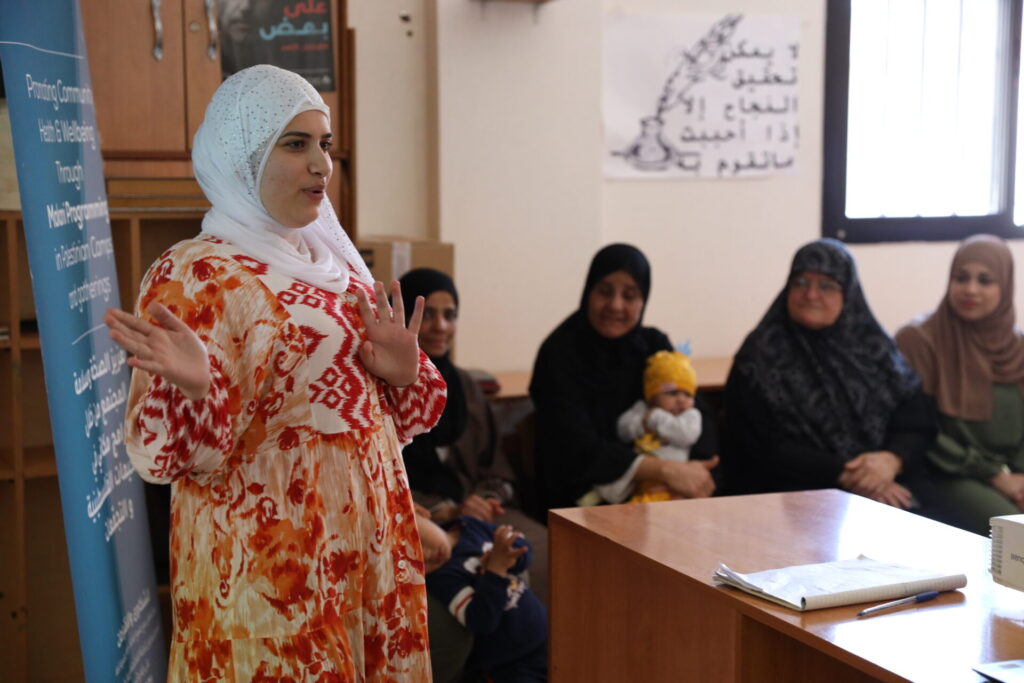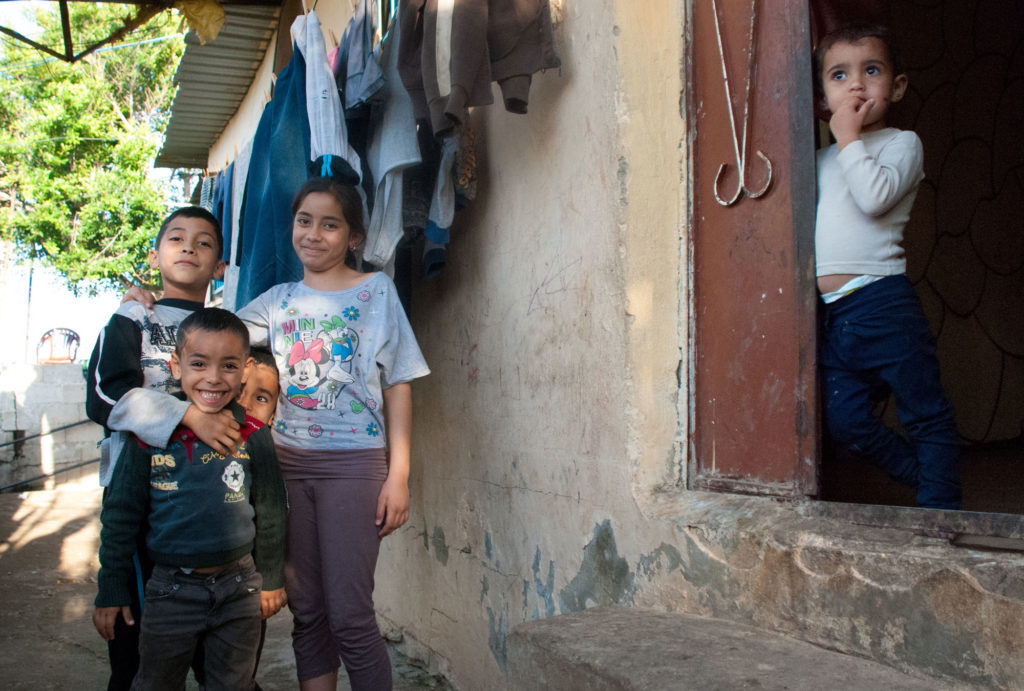Oct, 2011
Walking through the narrow winding alleyways of Ein El Helweh Palestinian refugee camp, the first impression is of a concrete jungle.
Electric wires criss-cross overhead and down the gray concrete walls, often leaving hardly any room for sunlight to penetrate into the camp, which is home to over 70,000 refugees.
But, nowadays the bleak concrete landscape is interrupted by small niches of green dangling from rooftops, window sills and balconies. It’s an urban agriculture of vegetables and herbs, from lavender, basil, thyme to peppers, eggplants and tomatoes, thanks to a pilot urban agriculture project by Anera and the American University of Beirut (AUB).
In partnership with Ein El Helweh Women’s Program Center (WPC), the project aims at ameliorating living conditions of the camp’s residents through a capacity building program on urban agriculture. The initiative includes the use of rooftop rain-water collection systems and drip irrigation. The project is transforming the WPC into a greenhouse as a prototype of the “green vision.” Vertical plantings that will cover cement facades should also help improve air quality and offer a visual respite from the stuffy grayness of crowded camp living.
Randa El-Miaari, one of the 26 women in the pilot project, began the training with little knowledge of how to take care of her already growing interest in planting herbs, plants and vegetables. “All the plants would die when I tried to plant them. I did not know how to keep them alive,” she says. Reflecting on what she learned, Randa adds “the training taught me how to treat all the plants that would get sick and I learned new ways of taking care of them. Now I grow basil and marjoram.”
Her eyes sparkling Maryam Awad laughs when she describes how she feels when she plants on her roof. “I feel like I am helping a child or a lamb grow. Even though the steps are a little hard for me to climb, I walk up [to my roof] every day to take care of them.” Her passion is contagious. Now her children have taken an interest in her garden and visit every day with her, learning the tools of the trade in the process.
The rooftop gardens serve more than just greening the environment. The participants use the herbs and vegetables they grow for home cooking. Almaza El-Sarqawi, who takes care of the green nursery at the WPC, found she did not need to buy extra herbs or vegetables to cook her family’s Ramadan meals. Using her own home-grown herbs gave her joy and the benefit of savings too.
“Camp residents are encouraged by what their actions will yield on multiple fronts” says Jackie Atwi, Anera Project Coordinator, “from environmental best practices to the beautification of their neighborhood and also to the economic benefits of growing their own plants.”
For residents of Ein El Helweh, the home garden project provides a sense of self-reliance and a positive change in otherwise stressful and challenging conditions.
Anera has implemented similar food security projects in Gaza and the West Bank. Other agricultural programs initiated by Anera in Lebanon include providing thousands of fruit trees seedlings and training for farmers in Upper Baalbek and Hasbaya areas to milking machines along with animal health training for farming families in the Nabatiyyeh area.


